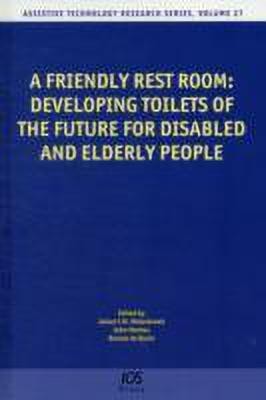A Friendly Rest Room: Developing Toilets of the Future for Disabled and Elderly People(English, Hardcover, unknown)
Quick Overview
Product Price Comparison
This book addresses the topic of toilet design, but instead of focusing on the typical able bodied user, it takes the various needs and limited abilities of older and/or disabled people as its starting point (human centered design). This follows the principles of 'Inclusive Design': designs taking into account the needs of the most challenged, will also have benefits for the healthy. For the most part, this book is a spin-off of an EU-funded research and development project called the 'Friendly Rest Room for Elderly People' (FFR), which ran from 2001 to 2005. During that period a consortium of 10 institutions in 7 European countries collaborated on the research, design and development of a friendlier toilet for elderly and disabled users. The contributions from partners in the FRR consortium to this book reflect the results of nearly 5 years of empirical work in different cultures, countries and disciplines. The book has been brought up-to-date with developments in this area of research in recent years.The goal of the FFR project was to carry out the necessary research and design, build and test prototypes for a Friendly Rest Room for older people and persons with a disability, enabling them to gain greater autonomy, independence, self-esteem, dignity, safety, improved self-care and thereby enjoy a better quality of life. The methods and technologies involved in fulfilling this objective included contactless smart card technologies with read-write capabilities, voice activation interface, motion control and sensor systems, mechanical engineering and robotic techniques, mathematical modeling, as well as ergonomic research and designs inspired by philosophy, gerontechnology and medical and social sciences. End-users and secondary users, as well as care takers and rehabilitation professionals, were involved in all stages of the research and problem solving processes of the FRR prototype development. Prototypes were tested taking account of the advice of industrial marketing companies and end-user organisations to improve the independence, dignity, safety, self-care and quality of life of older and/or disabled people within the European community.


